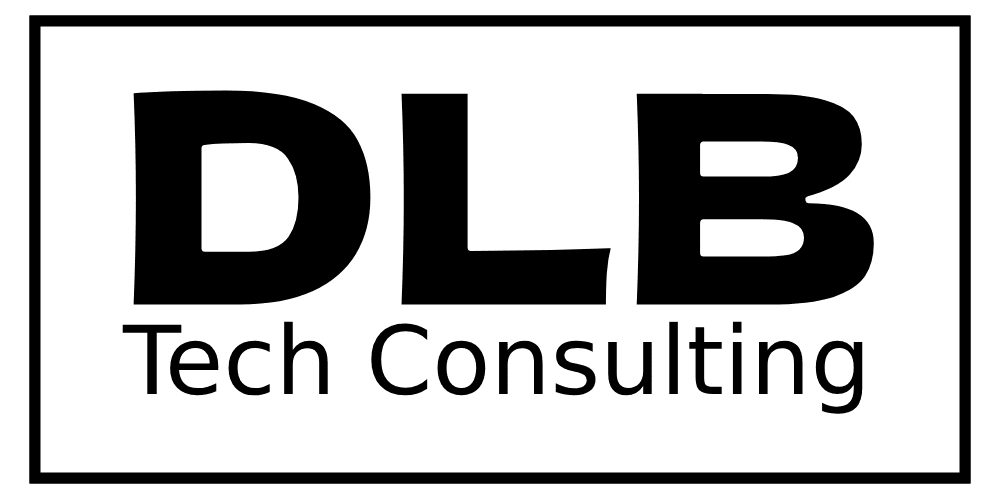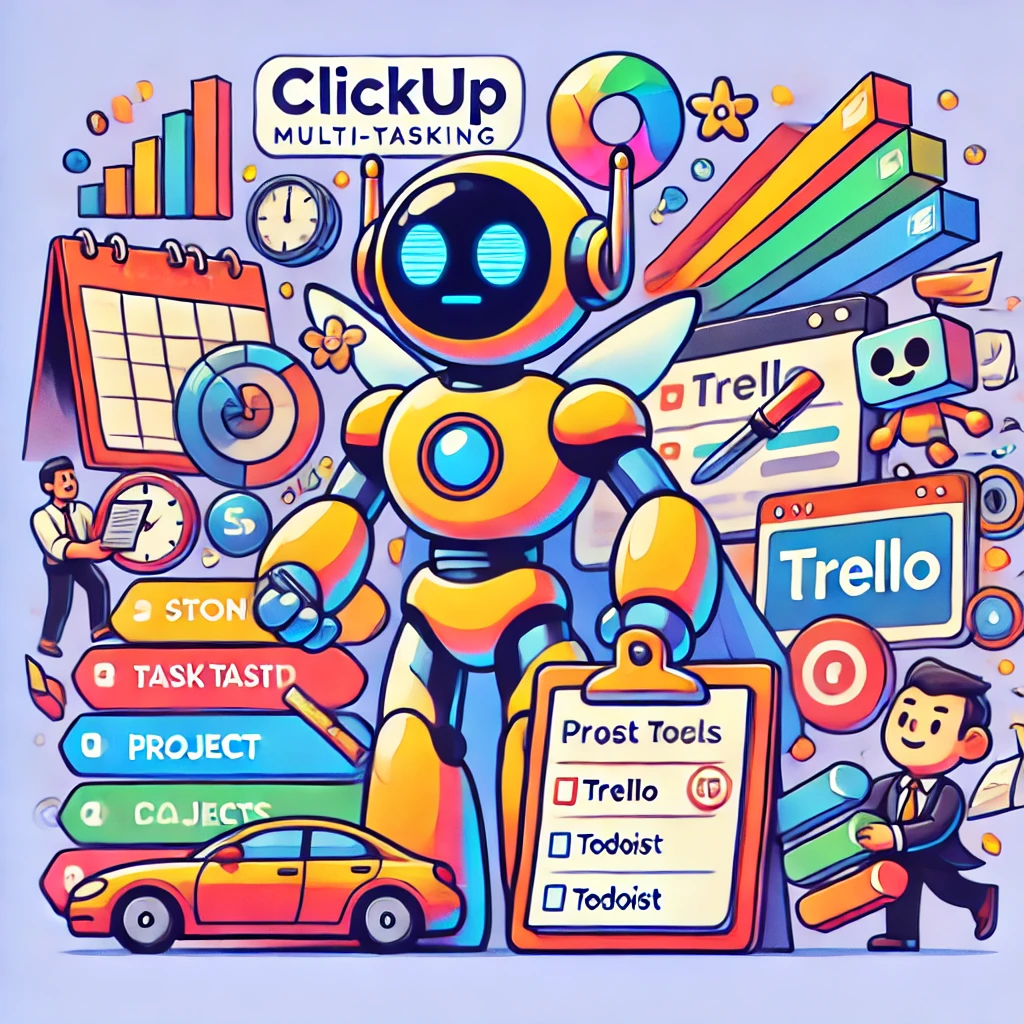Productivity apps have become essential for managing tasks, organizing projects, and improving collaboration. Here’s a detailed review of the top 10 productivity apps this September, including both free and paid versions for a wide range of needs, from simple task management to advanced team collaboration tools.
Table of Contents
ToggleClickUp: The All-in-One Productivity Solution (Free and Paid)
ClickUp is a versatile, all-in-one productivity tool used by businesses, freelancers, and individuals. It allows users to manage tasks, projects, goals, and collaboration in a flexible way.
Free Version:
- Unlimited tasks and projects: Even the free version provides unlimited task creation, so you can manage multiple projects and personal tasks without restriction.
- Customizable views: The free plan supports multiple views, including kanban, list, and calendar, allowing you to choose the one that best suits your style.
- Real-time collaboration: You can invite as many team members as needed to collaborate on projects without extra cost, making it ideal for small teams.
Paid Version:
- Cost: Starts at $7 per user/month.
- Advanced features: Paid plans offer tools like automations, Gantt charts, goals and portfolios, which allow you to streamline workflows and manage bigger projects efficiently.
- Time tracking: Essential for teams that need to track time for billing or productivity analysis.
- Custom fields: Personalize tasks with fields like budgets, due dates, and more to ensure all relevant information is easily accessible.
Why Choose ClickUp:
- Highly customizable for both simple tasks and complex projects.
- Extensive integrations with other apps like Slack, Google Drive, and Trello.
- Useful for individuals and teams of all sizes.
Check out this app at ClickUp
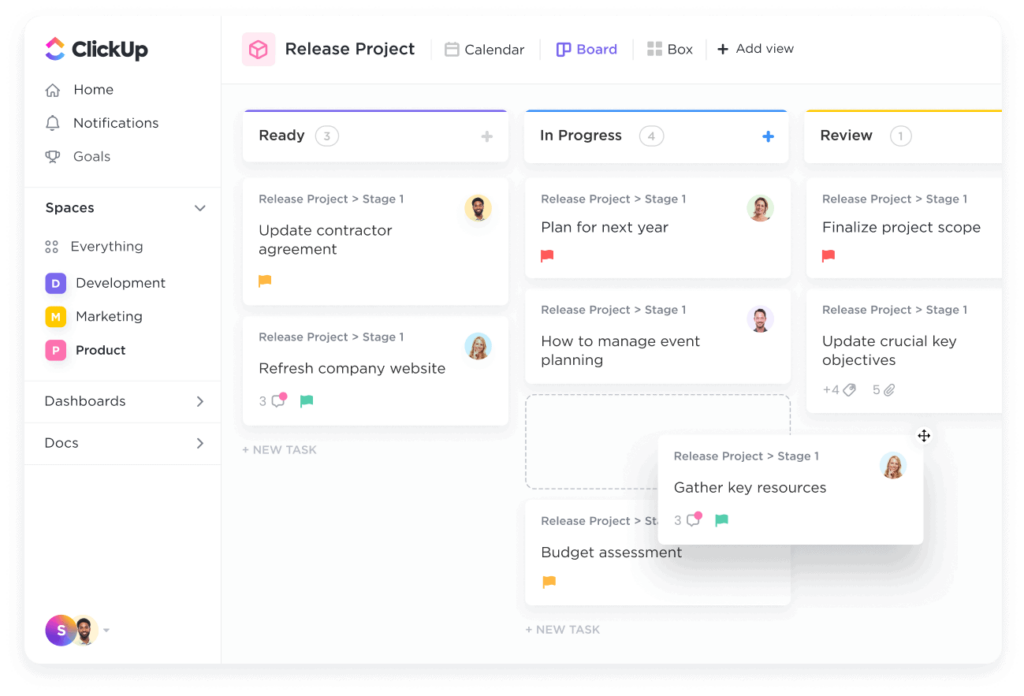
Trello: Best for Visual Project Management (Free and Paid)
Trello uses boards, lists, and cards to visually organize tasks, making it a favorite for people who prefer a visual workflow.
Free Version:
- Unlimited boards, lists, and cards: Easily manage personal projects or organize small team efforts with no limits.
- Simple task management: Users can add due dates, labels, and checklists to each task card, making it easier to track progress.
- App integrations: Trello’s free version allows basic integrations with tools like Slack, Google Calendar, and Google Drive, enhancing its collaborative capabilities.
Paid Version:
- Cost: Starting at $5 per user/month.
- Automation with Butler: Automate tasks like moving cards between lists when deadlines are met or actions are completed.
- Custom fields: Add detailed information to tasks like deadlines, project status, or priority.
- Unlimited app integrations: Trello’s premium plans enable users to integrate with more apps, including advanced CRM and task management tools.
Why Choose Trello:
- Great for visually organizing and tracking tasks.
- User-friendly interface ideal for both individuals and teams.
- Free and paid versions suit different levels of project complexity.
Check out this app at Trello.
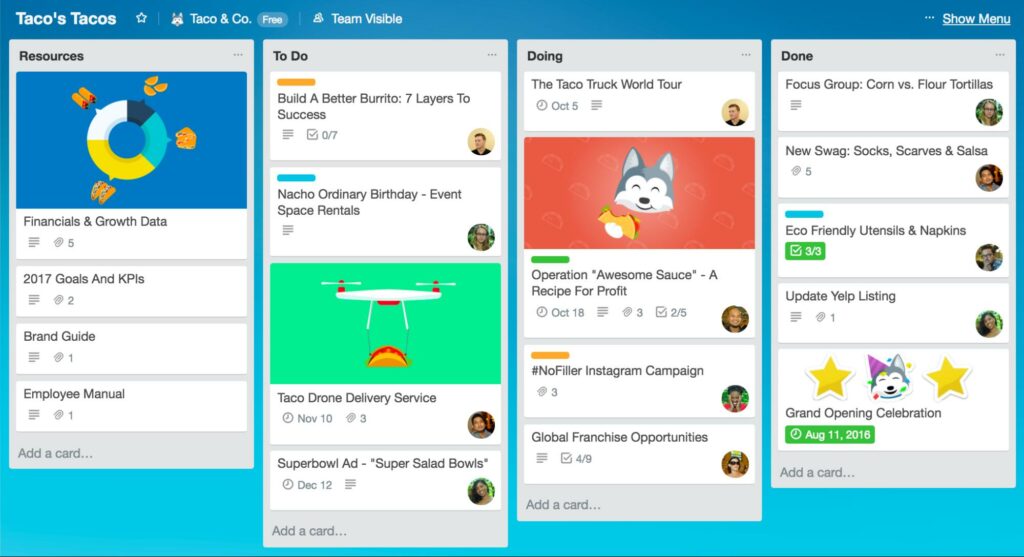
Notion: Flexible Workspace for Notes and Projects (Free and Paid)
Notion is an incredibly flexible app that combines note-taking, task management, and project collaboration in one workspace. It’s ideal for users who need a highly customizable solution.
Free Version:
- Basic note-taking and task management: The free plan supports unlimited notes and simple task lists, making it great for personal use.
- Customizable templates: Use templates for personal task tracking, project planning, and even knowledge databases.
- Collaboration: Real-time collaboration on notes and tasks is available, even on the free version.
Paid Version:
- Cost: Starts at $10 per user/month.
- Unlimited file uploads: Premium plans allow for unlimited storage, useful for teams that need to share documents, videos, and other files.
- Team collaboration features: Advanced collaboration tools allow users to assign tasks, create shared wikis, and integrate calendars for team use.
Why Choose Notion:
- Excellent for both personal use and team collaboration.
- Combines tasks, notes, and knowledge bases in one platform.
- Customizable templates and layouts for a wide variety of uses.
Check out this app at Notion.
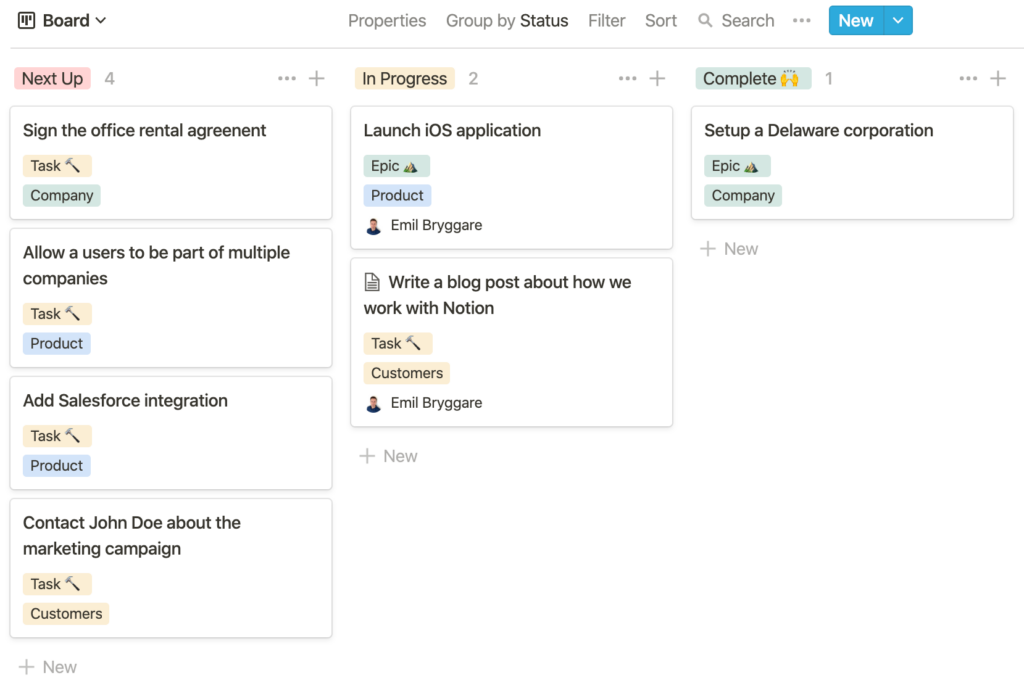
Todoist: Best for Simplicity (Free and Paid)
If you need a simple, streamlined task manager, Todoist is a great option. It’s designed to help you keep track of daily tasks and long-term projects without over-complicating the process.
Free Version:
- Basic task management: Create tasks, subtasks, and simple to-do lists. The free version supports adding deadlines and organizing tasks with labels.
- Collaboration: Free users can share tasks and projects with up to five people, making it useful for personal and small group projects.
Paid Version:
- Cost: Starts at $4 per month.
- Task reminders: Get reminders for upcoming deadlines via push notifications or email.
- Task trends and productivity tracking: View charts and graphs that show how you’re managing tasks over time.
Why Choose Todoist:
- Simple and easy to use, perfect for individual task management.
- Syncs across all devices for access anytime.
- Low-cost premium version with useful upgrades.
Check out this app at Todoist.
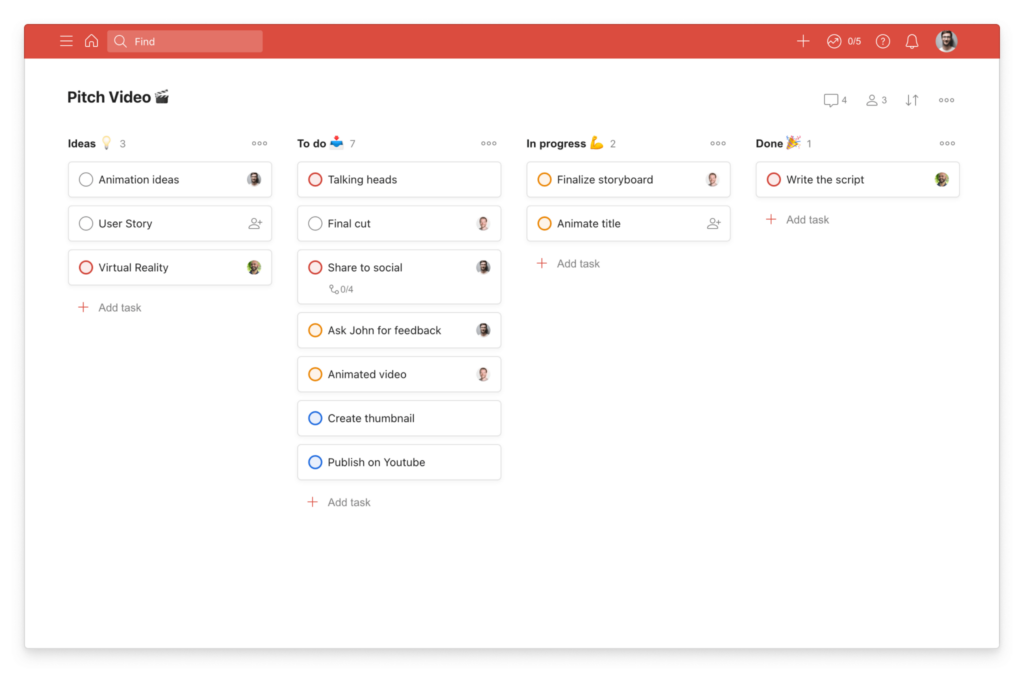
Google Keep: Best for Quick Notes (Free)
Google Keep is an excellent choice for users who need a fast, lightweight app for note-taking and checklists. It syncs seamlessly with the Google ecosystem, making it ideal for users already using tools like Gmail or Google Drive.
Free Version:
- Completely free with no premium upgrade required.
- Simple note-taking: Create notes, to-do lists, and checklists on the go.
- Reminders: Set location-based or time-based reminders for tasks.
- Integration with Google apps: Syncs with Google Drive and Google Calendar, allowing seamless task and note management.
Why Choose Google Keep:
- Great for users who need a quick, no-frills note-taking app.
- Free and integrated with Google apps.
- Accessible from any device with a Google account.
Check out this app at Google Keep.
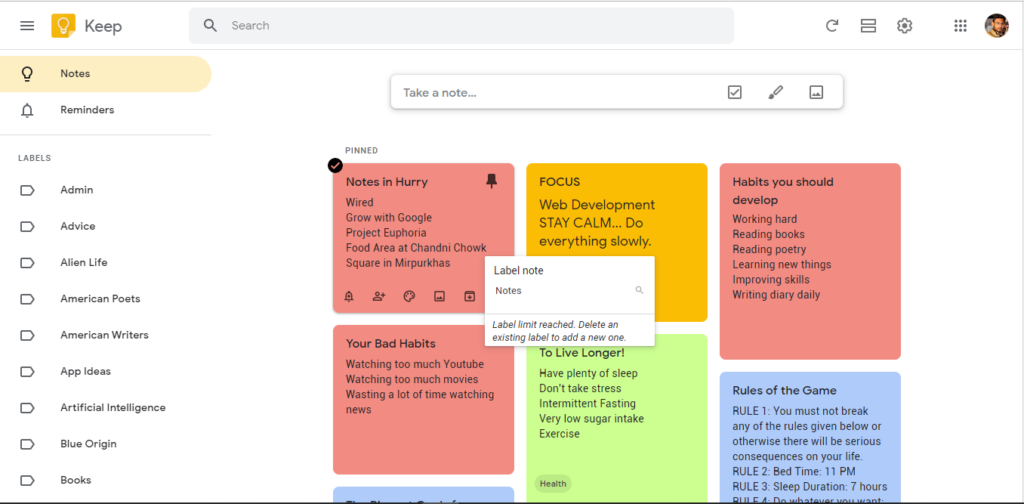
Asana: Best for Large Project Tracking (Free and Paid)
Asana is a powerful project management tool that helps teams organize tasks, track project progress, and collaborate in real-time.
Free Version:
- Basic project tracking: The free plan includes task creation, deadlines, and limited collaboration for teams of up to 15 people.
- Multiple views: Choose from list, kanban, or calendar views to organize tasks.
Paid Version:
- Cost: Starts at $10.99 per user/month.
- Advanced reporting and timelines: Paid plans include access to Gantt charts, task dependencies, and advanced reporting.
- Workflow automation: Automate repetitive tasks to save time and improve efficiency.
Why Choose Asana:
- Ideal for teams managing complex projects.
- Scalable for large organizations.
- Integration with hundreds of apps and services, like Slack and Dropbox.
Check out this app at Asana.
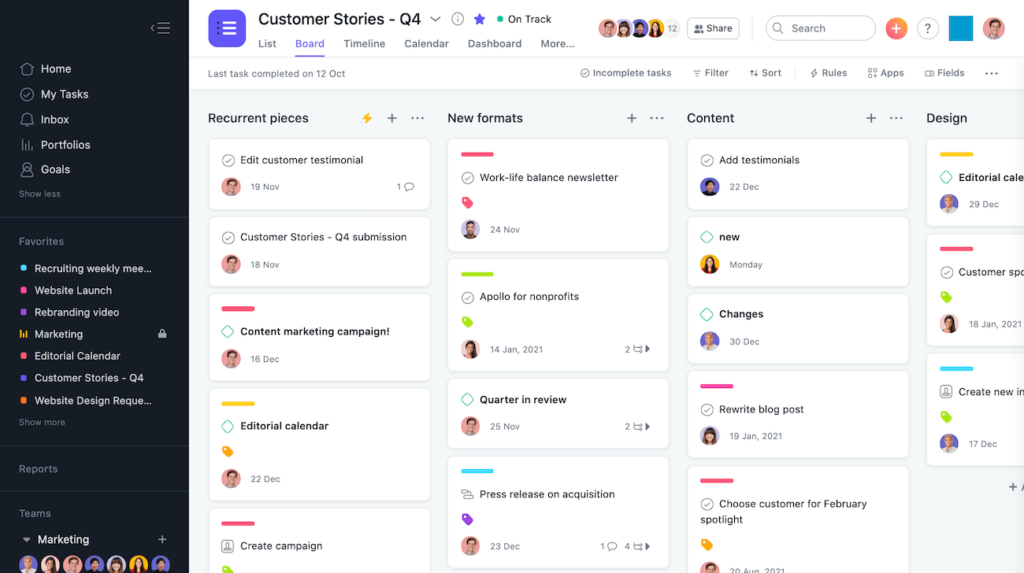
This detailed breakdown helps you understand what each app offers in both its free and paid versions, making it easier to choose the one that best fits your needs.
Ready to supercharge your productivity? Contact DLB Tech Consulting for expert advice on implementing these productivity tools in your business.
